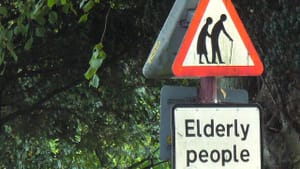Stay in the Loop
BSR publishes on a weekly schedule, with an email newsletter every Wednesday and Thursday morning. There’s no paywall, and subscribing is always free.
When reality is more inspiring than "reality"
Linda Brendle's 'Long and Winding Road'

My youngest sister's guilty pleasure is reality TV. Or maybe I should call it research — she does have a PhD in clinical psychology. I watch relatively little of the stuff, except when I stay with her in Atlanta for Christmas. Spending a few hours absorbing Millionaire Matchmaker or Real Housewives of Atlanta is the epitome of aimlessness, a true vacation from my over-scheduled, overly productive life.
Even my sister, however, draws the line at the now-canceled CW network show, Famous in 12, in which the Artiaga family (Mike, Angie, and their nine kids) have 12 weeks to become household names, with the help of tabloid website TMZ. The clan soon discovers that their talents, such as they are, won't do the job, so they resort to spectacle — showing up in public scantily clad, lying about having Donald Sterling at their house. The ideal payoff for their pursuit of “fame”? Parity with their inspirations, the Kardashians.
Famous in 12 has to be the nadir of America's fascination with celebrity (which is hardly new, or limited to this country). I suspect that even the first cave dwellers fantasized about life over the next hill, but as more and more people have less and less access to the wealth that fame is supposed to provide, I hope that the appeal of being famous for fame's sake will wane, and “normal” lives will be seen as valuable. I may be unusual, but I generally draw more strength for my daily journey from people whose experiences have some relationship to mine than from the Paris Hiltons (remember her?) of the world.
I was reminded of this truth as I read Linda Robinson Brendle's Long and Winding Road. Everyone seems to write a memoir these days, and the authors are often famous entertainers or the survivors of a well-publicized crisis. Linda is an “ordinary” person, which is part of the reason the book resonates so deeply.
The journal that formed the basis of Brendle's book was an attempt to maintain her sanity. She and her husband came up with the brilliant idea of purchasing an RV and taking a seven-week road trip, accompanied by her late parents, both of whom suffered from dementia. Being a caregiver is hard enough when you're not locked together in a small space for days on end. Luckily, despite her occasionally imperfect handling of the inevitable frustrations, Linda has the patience of a saint and a good sense of humor, the former perhaps due to her Christian faith, the latter a family tradition. The purpose of A Long and Winding Road is to share an experience that is all-too-common with others who understand, not to create a false sense of “specialness.” Linda decided to seek publication only at the urging of her son, Christian Piatt, also a writer.
The journey, not the destination
Although each day of the journey gets its own chapter, it soon becomes obvious that the trip itself is a very small part of the story. Early on, Linda identifies herself as the codependent in the family. She describes her time in therapy dealing with her overly developed sense of responsibility, the result of growing up in a household where conflicts were never resolved — her mother was given to dramatic displays, and her father was a resolute stoic whose life got smaller to suit his wife's demands.
In addition to her childhood, Linda discusses how she handles her parents (“the Kids”) as they decline, the challenges of raising son Christian, who had his own serious issues, as well as the dissolution of her first marriage and evolution of her current one. Along the way, she took chances — learning to ride a motorcycle in midlife, writing and answering personal ads after her divorce, training in a new career at a time when many people are thinking about retiring. What emerges is a portrait of a woman who accepts and absorbs the slings and arrows of life with grace, resilience, and quiet courage.
All of which I find far more inspiring than parlaying a sex tape into a career, as difficult an achievement as that may be.
There are a lot of everyday occurrences in Linda's memoir — mention of who washed the dishes, lunch and dinner menus, TV reception (an author from Texas is going to watch the Dallas Cowboys, even on the road), and the like. At first, I found some of this overly detailed, but I later found the normal rhythms of Brendle's family became an important backdrop for the pressures dementia can exert. I have an autistic son, and I know that days when everything goes smoothly are nothing to take for granted.
This book isn't only for caregivers (though many of us will spend some time in this role). Life presents each one of us with challenges. The author's story is an inspiration because the things she must overcome, while uniquely hers, are so very familiar.
What, When, Where
Sign up for our newsletter
All of the week's new articles, all in one place. Sign up for the free weekly BSR newsletters, and don't miss a conversation.

 Maria Thompson Corley
Maria Thompson Corley